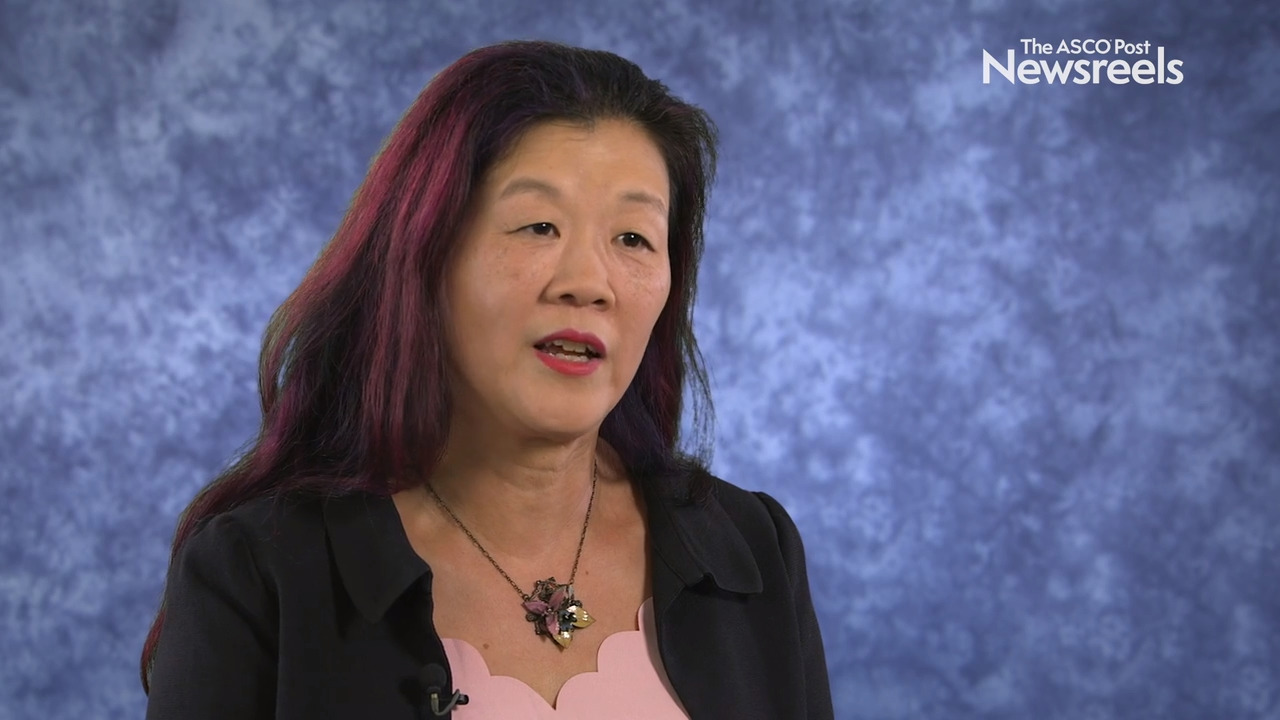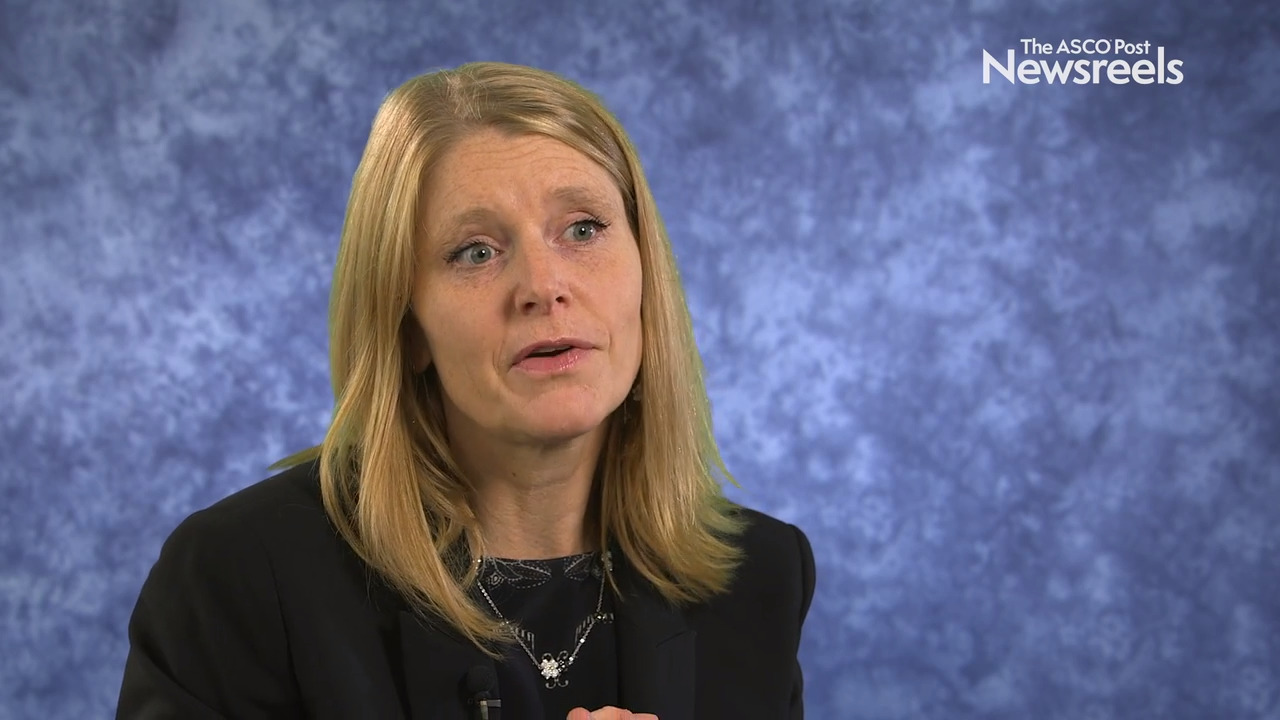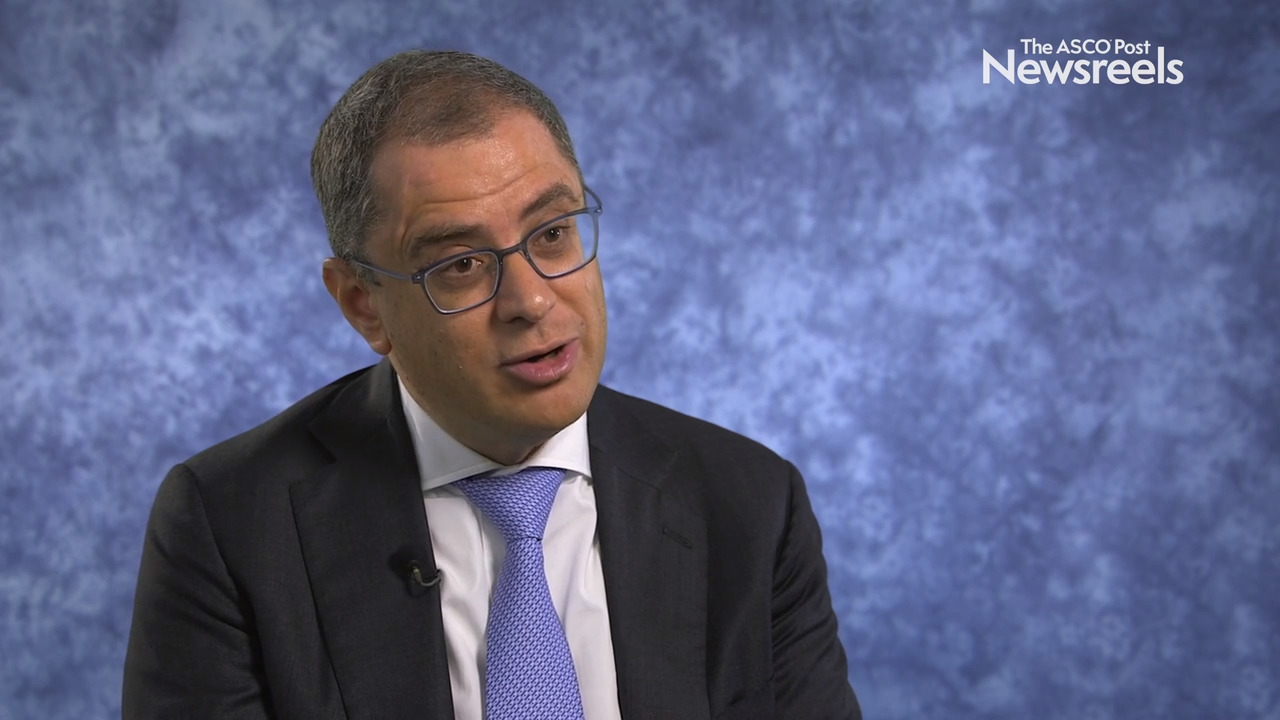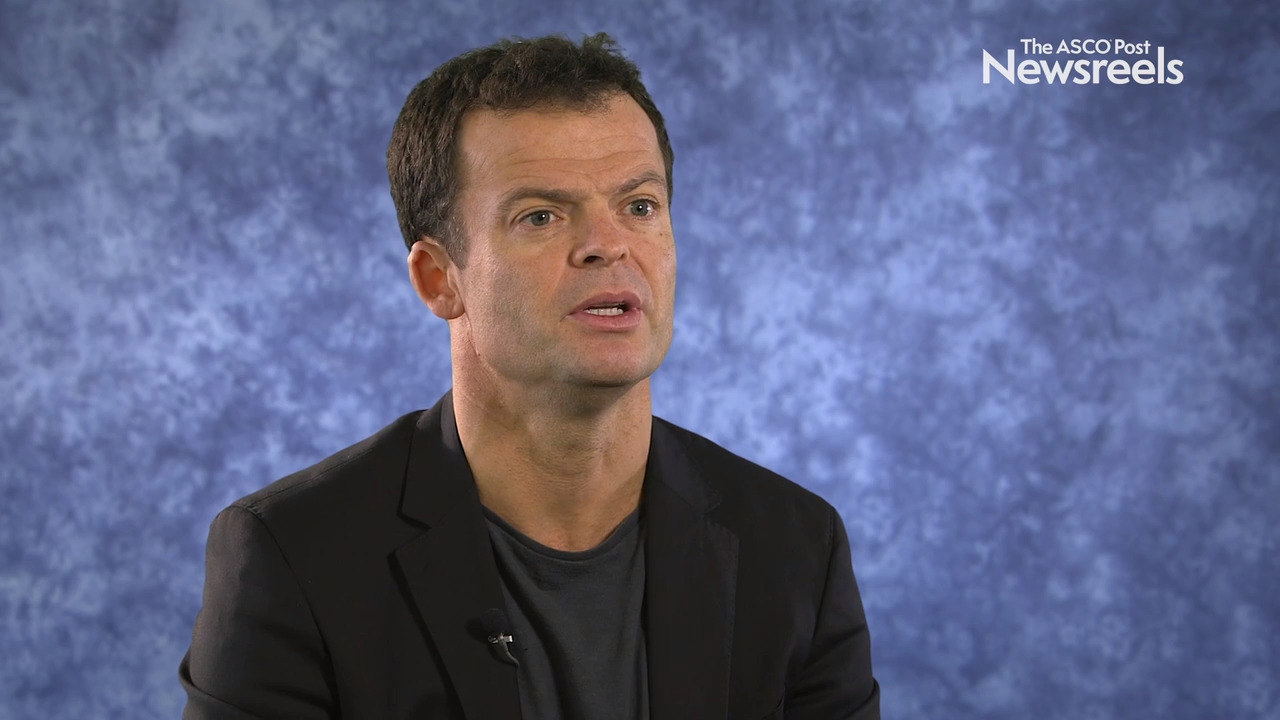Volker Kunzmann, MD, on Advanced Pancreatic Cancer: Findings on nab-Paclitaxel/Gemcitabine and FOLFIRINOX
ESMO 2019 Congress
Volker Kunzmann, MD, of the University of Würzburg/Comprehensive Cancer Center Mainfranken, discusses the final results of a phase II multicenter trial on the conversion rate in locally advanced pancreatic cancer after nab-paclitaxel/gemcitabine- or FOLFIRINOX-based induction chemotherapy (Abstract 671O).
Sungjune Kim, MD, PhD, of the H. Lee Moffitt Cancer Center and Research Institute, discusses phase II study findings on the safety and tolerability of nivolumab/ipilimumab plus stereotactic body radiation therapy (Abstract 1321P).
Laura Q.M. Chow, MD, of the University of Texas at Austin, Dell Medical School and LIVESTRONG Cancer Institutes, discusses phase II study findings that showed the ALK inhibitor ceritinib achieved durable intracranial response in patients with ALK-positive non–small cell lung cancer that has spread to the brain (Abstract 1478O).
Solange Peters, MD, PhD, of the Oncology Department of CHUV, discusses study findings from the first phase III trial to show PD-1 and CTLA-4 inhibition is effective in non–small cell lung cancer, with improved overall survival vs chemotherapy (Abstract LBA4).
Ghassan K. Abou-Alfa, MD, MBA, of Memorial Sloan Kettering Cancer Center, discusses phase III study findings showing improvement in progression-free survival among patients with an isocitrate dehydrogenase 1 (IDH1) mutation who received ivosidenib compared with a similar group that received placebo (Abstract LBA10).
Thomas Powles, MD, PhD, of Queen Mary University of London, discusses the first study to examine immunotherapy and targeted treatment combinations with a personalized approach in bladder cancer. FGF, TORC1/2, and PARP inhibitors were explored in combination with durvalumab in selected patients (Abstract 902O).





